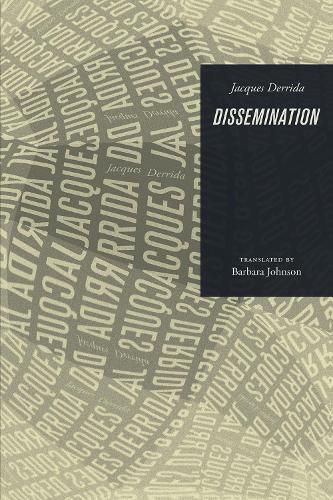Readings Newsletter
Become a Readings Member to make your shopping experience even easier.
Sign in or sign up for free!
You’re not far away from qualifying for FREE standard shipping within Australia
You’ve qualified for FREE standard shipping within Australia
The cart is loading…






The English version of Dissemination [is] an able translation by Barbara Johnson … . Derrida’s central contention is that language is haunted by dispersal, absence, loss, the risk of unmeaning, a risk which is starkly embodied in all writing. The distinction between philosophy and literature therefore becomes of secondary importance. Philosophy vainly attempts to control the irrecoverable dissemination of its own meaning, it strives–against the grain of language–to offer a sober revelation of truth. Literature–on the other hand–flaunts its own meretriciousness, abandons itself to the Dionysiac play of language. In Dissemination–more than any previous work–Derrida joins in the revelry, weaving a complex pattern of puns, verbal echoes and allusions, intended to ‘deconstruct’ both the pretension of criticism to tell the truth about literature, and the pretension of philosophy to the literature of truth.–Peter Dews, New Statesman
$9.00 standard shipping within Australia
FREE standard shipping within Australia for orders over $100.00
Express & International shipping calculated at checkout
The English version of Dissemination [is] an able translation by Barbara Johnson … . Derrida’s central contention is that language is haunted by dispersal, absence, loss, the risk of unmeaning, a risk which is starkly embodied in all writing. The distinction between philosophy and literature therefore becomes of secondary importance. Philosophy vainly attempts to control the irrecoverable dissemination of its own meaning, it strives–against the grain of language–to offer a sober revelation of truth. Literature–on the other hand–flaunts its own meretriciousness, abandons itself to the Dionysiac play of language. In Dissemination–more than any previous work–Derrida joins in the revelry, weaving a complex pattern of puns, verbal echoes and allusions, intended to ‘deconstruct’ both the pretension of criticism to tell the truth about literature, and the pretension of philosophy to the literature of truth.–Peter Dews, New Statesman